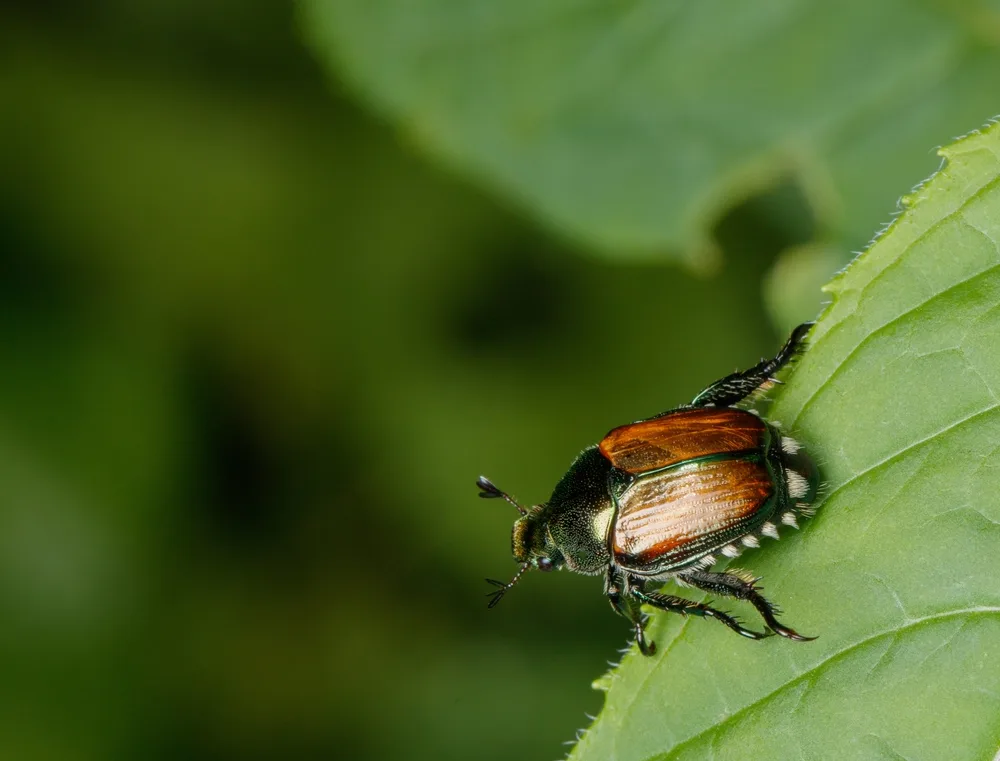If you’ve ever spotted shiny, copper-colored beetles munching on your plants, you know the struggle. Japanese beetles are tiny troublemakers that can wreak havoc in your garden. But fear not! Here are nine tried-and-true ways to fight back and keep your plants safe.

1. Hand-Picking: A Simple Start
Start by hand-picking the beetles off your plants. It’s not glamorous, but it’s effective. Early in the morning, when they’re sluggish, is the best time. Drop them into a bucket of soapy water to stop them from coming back.
2. Neem Oil: A Natural Defender
Neem oil is a natural way to repel these pesky beetles. Spray it on your plants. The oil disrupts their feeding and breeding. It’s safe for your plants and pets, but the beetles hate it.
3. Milky Spore: A Long-Term Solution
Consider using milky spore powder. This natural bacterium targets Japanese beetle larvae in the soil. Sprinkle it around your garden, and over time, it reduces the beetle population.
4. Beneficial Nematodes: Tiny Garden Helpers
Introduce beneficial nematodes to your soil. These microscopic worms prey on beetle larvae, reducing their numbers before they even emerge. It’s a safe and organic solution.
5. Row Covers: A Physical Barrier
Use row covers to protect your plants. These fine mesh covers act as a physical barrier, preventing beetles from reaching your plants. It’s an effective way to keep them out while letting sunlight and water in.
6. Trap Crops: Sacrificial Plants
Plant trap crops like geraniums or marigolds. Japanese beetles love them and will flock to these plants instead of your prized vegetables and flowers. Once they gather on the trap crops, you can easily dispose of the beetles.
7. Insecticidal Soap: A Quick Fix
Use insecticidal soap as a quick fix. Spray it directly on the beetles. It works by suffocating them. It’s a good short-term solution to keep their numbers down.
8. Companion Planting: Nature’s Deterrent
Companion planting can also help. Plants like garlic, chives, and catnip repel Japanese beetles. Plant them alongside your vulnerable crops to create a natural deterrent.
9. Beetle Traps: Use with Caution
Beetle traps can be effective but use them with caution. They attract beetles from all around, which can sometimes make the problem worse. Place them far from your garden to lure the beetles away.
Take Back Your Garden
Fighting Japanese beetles requires a mix of strategies. Try these methods and find what works best for you. With a little effort, you can protect your garden and keep it flourishing. Happy gardening!
